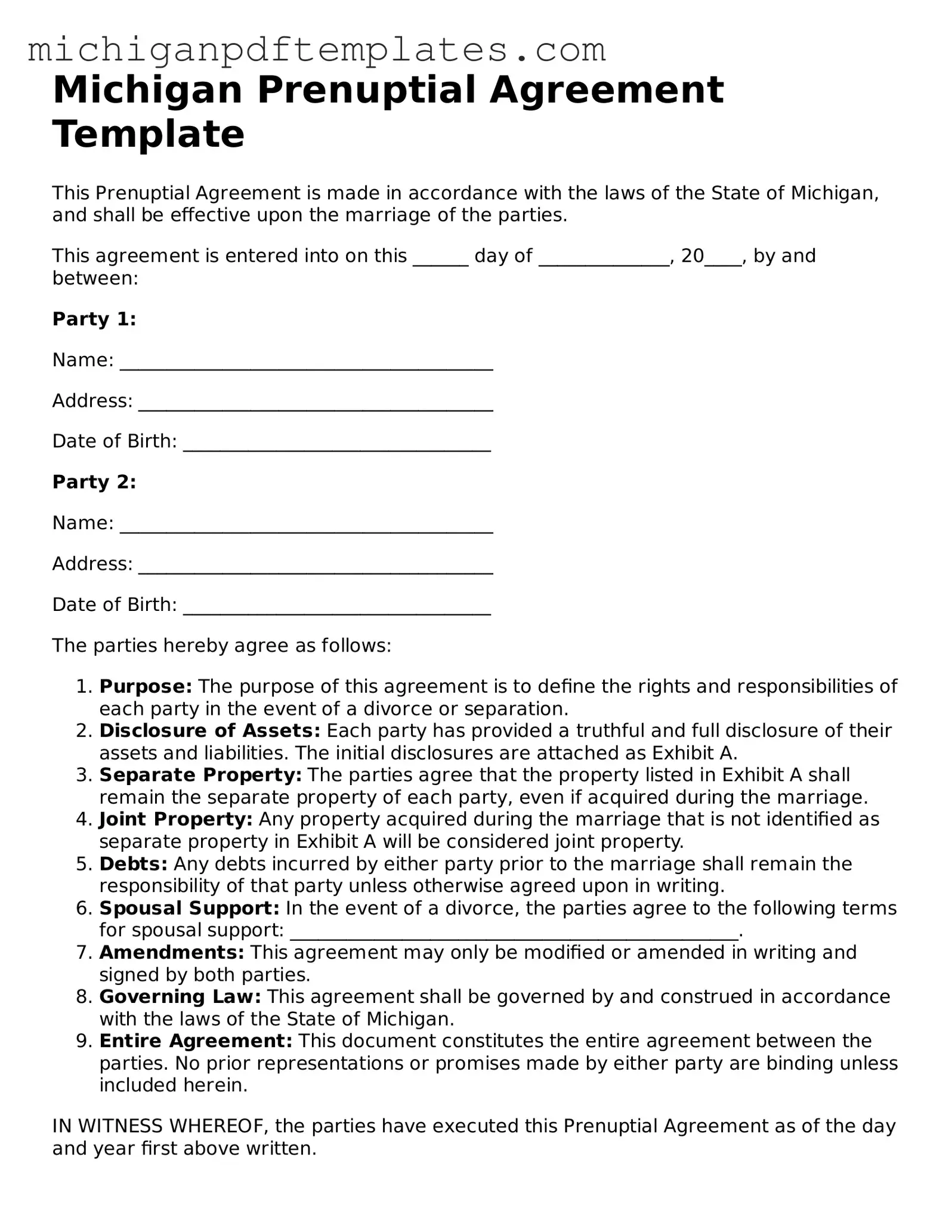Legal Michigan Prenuptial Agreement Template
A Michigan Prenuptial Agreement form is a legal document that outlines the financial and property rights of each spouse in the event of divorce or separation. This agreement helps couples clarify their expectations and protect their assets before entering marriage. To get started on securing your future, fill out the form by clicking the button below.
Get Your Form Now

Legal Michigan Prenuptial Agreement Template
Get Your Form Now

Get Your Form Now
or
▼ PDF Form
Finish this form quickly and move on
Fill in and complete Prenuptial Agreement online quickly.